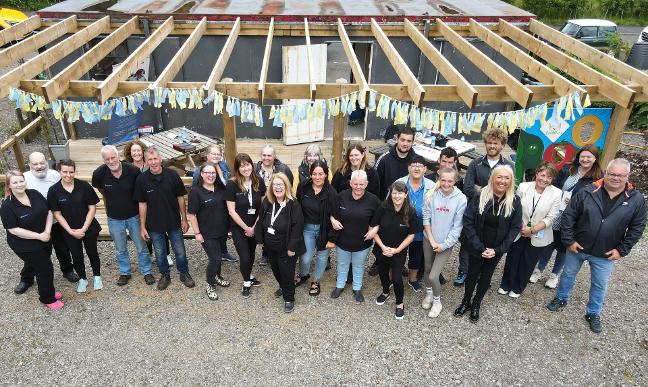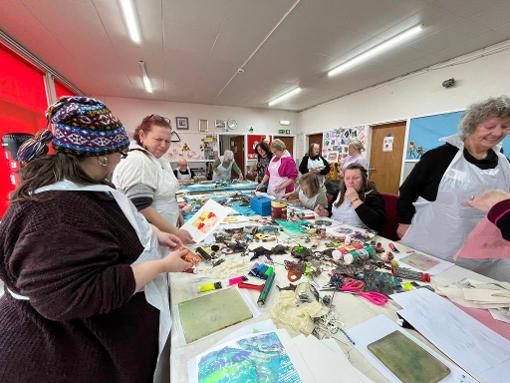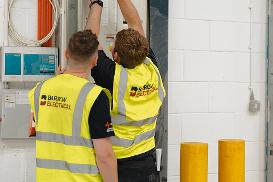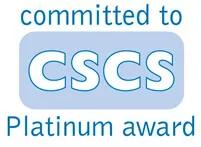




Beyond the budget: lies, outrage, and false economies
FCAfines Monzo for failures in financial crime controls
Hoxton Ventures teams with NVIDIAto accelerate UKAI startup ecosystem
£3B ITskills waste sparks launch of ITconsultancy talent sharing economy
An online test for trying out an employee-ownership trust
Okapi Partners expands London office
Accountant shares five tips to help businesses finish year strong
KnowBe4 finds top cybersecurity risk is employee distraction
50% of UKworkers call for end of monthly pay day, research reveals
Putting more 'Woo' into the South West
London start-up launches crowdfunding campaign for foldable smart helmet
The tech prosperity deal is huge But will the UKreap the benefits?
How workplace bullying can affect your personality
How to help disabled and neurodivergent people flourish working from home
Four reasons why the UKlags behind its rivals on productivity
ChatGPTonly talks in cliches - here's why that's a threat to human creativity
Kentown Programme extends local children's community palliativecare support
Working together to create career opportunities in West Cumbria
£260k government funding to build social connections
Smartken engages Anthony Amato to support strategic initiatives
Haier signs new partnership with Liverpool FCand more


The Financial Conduct Authority (FCA) has fined Monzo Bank Ltd £21,091,300 for its inadequate anti-financial crime systems and controls between October 2018 and August 2020.
Monzo also repeatedly breached a requirement preventing it from opening accounts for high-risk customers between August 2020 and June 2022.
Monzo's customer base has grown rapidly, increasing almost tenfold from around 600,000 in 2018 to over 58 million in 2022 However, Monzo's financial crime controls failed to keep pace with its customer and product growth
In particular, Monzo failed to design, implement and maintain adequate customer onboarding, customer risk assessment and transaction monitoring systems to mitigate the risk of financial crime These systemic failings resulted in the FCArequiring a comprehensive, independent review of the firm's financial crime framework in August 2020.
Alongside the independent review, the FCA imposed a requirement preventing Monzo from opening new accounts for high-risk customers. However, between August 2020 and June 2022, it repeatedly failed to comply with the terms of the requirement, including signing up over 34,000 high-risk customers
Therese Chambers, FCAjoint executive director of enforcement and market
oversight, said:
Banks are a vital lineof defence in the collective fight against financial crime They must have the systemsin place to prevent the flow of ill-gotten gainsinto the financial system Monzo fell far short of what we, and society, expect
Monzo onboarded customerson the basis of limited, and in some cases, obviously implausible information ? such as customers using well known London landmarks as an address This illustrates how lacking Monzo's financial crime controls were This was compounded by its inability to properly comply with the requirement not to onboard high-risk customers'
Monzo has established and completed a financial crime changeprogramme to remediate and enhanceits wider financial crime control framework in line with recommendationsmade in the independent review
The FCAcontinuesto supervise firms to improve standardsand ensure that they have the right systems and controlsto manage financial crime risks Thisis the 10th fine the FCAhas imposed on a bank for financial crime control failings in the last 4 years.
The FCAhighlighted financial crime as one of its priorities for retail banksin its2024 supervisory strategy




Hoxton Ventures today announced its participation in NVIDIA's landmark UKAI investment of £2billion to strengthen the UK's position as a global leader in artificial intelligence The alliance will expand access to capital and compute for British founders, empowering them to build the next generation of transformative AI companies.
Through this collaboration, NVIDIA, Hoxton Ventures, Accel, Air Street Capital, Balderton, and Phoenix Court will provide capital to accelerate the growth of the UK's AI ecosystem by addressing historic challenges such as limited access to supercomputing power, constrained venture capital outside London, and barriers between academia and entrepreneurship. The investment will support emerging startups in innovation hubs across London, Oxford, Cambridge, Manchester, and beyond
"Hoxton was founded on the belief that world-class companies can emerge from Europe ? and the UKhas the ingredients to be a global leader in AI," said Hussein Kanji, Founder and Managing Partner at Hoxton Ventures "By working with NVIDIAand other top investors, we're bridging global scale
with local knowledge to ensure that Britain's brightest founders havethe capital, compute, and infrastructure theyneed to build globally transformative businesses." This collaboration builds on Hoxton's decade-long track record of backing ambitious UKand European founders at the forefront of AI and deeptech. The UKhas many companies that are pioneers in next-generation AI, novel computing architectures, robotics,and advanced materials ? such asCuspAI, Machenta, Milvus Advanced, and Universal Quantum ? many spun out of the UKs leading research institutions (Imperial CollegeLondon,Oxford University, and theUniversity of Sussex)
Another UK-founded portfolio company, Peptone, is already collaborating with NVIDIA to develop an AI to predict the shape of disordered proteins? aclass of biology that has remained invisible to traditional experimental techniques. By focusing on deep scientific breakthroughs with real-world applications,Hoxton has cemented its role as ago-to partner for the UK's most promising entrepreneurs

AUK-based startup has created the first talent sharing economy for ITconsultancies with the launch of BenchBee - a member-driven network that enables consultancies to monetise their ?bench? consultants, reduce recruitment costs, and respond faster to project demands
The platform delivers a dynamic, skills-rich community where member organisations collaborate by subcontracting available talent within a trusted ecosystem and turning idle bench time into profitable revenue streams This community-first approach provides a vital solution at a time when hiring freezes, budget cuts, and skills shortages are putting delivery under intense pressure
?Thisisn? t just another job board ?it'san entirelynew categoryof talent sharing that disruptsthe traditional recruitment model,? says Founder and CEOHassen Hattab
?We?ve created a member-driven ecosystem where consultanciescan connect, match available talent to project needsin real time, and accesshidden talent poolsthat traditional recruitment simplycan't reach
It?sa smarter wayto fill skillsgapsand unlock underused expertise that would otherwise remain invisible.?
The £Billion Bench Problem
According to IDC, ITskills shortages will affect 90% of organisations by 2026, costing the global economy an estimated $55 trillion (£418 trillion) As demand for niche expertise continues to surge, consultancies can no longer afford to let highly skilled professionals sit idle between projects. In the UK, the average ITconsultant spends 15?20% of their time on the bench, fully employed but not generating revenue For a consultancy with 500 consultants, this translates to £15.3 million in lost revenue per year That figure reaches an eye-watering £306 billion in non-billable hours annually[1]
Typically, agencies charge 15-20%placement fees on inflated salaries, but rarely deliver the niche skills companies need, when they need them. Meanwhile, the best talent isn? t on job boards; they?re already working and invisible to traditional hiring channels
This leaves consultancies with impossible choices: pay extortionate recruitment fees, gamble on unknown freelancers, or watch projects collapse while perfect candidates sit unused elsewhere in the industry.
"After more than a decade in the industry, I kept seeing the same problem,"says Hassen Hattab
"One organisation hasbrilliant people on the bench. Another islosing work due to a lack of skills. The old system doesn't work anymore. Consultanciesneed agile accessto skills, not lengthyrecruitment processes. BenchBee directlyconnectsthose dots, providing businesses with the skillsthey need while dramaticallyreducing costs.?
In a sector bleeding £billions in lost productivity, BenchBee?s collaborative, consultancy resource sharing model solves three of the industry?s biggest challenges:
- Monetising underused consultants
- Accessing hidden talent pools
- Eliminating recruitment inefficiencies
Instead of competing for scarce talent, BenchBee enables members to share and monetise underutilised consultantsduring bench periods, while accessing specialised skills from trusted peerswhen needed.
Vetted consultancies join asecure network and subcontract talent as required Aflat membership fee replaces costly commissions, providing predictable costs and real-time access to pre-qualified professionals already working in the industry
As skills shortagesintensify and economic pressures grow, BenchBee empowers consultancies to take control, maximise their existing talent, protect margins, and move faster in an increasingly competitive market ?Thisisn? t better recruitment,it?sa completelydifferent approach to uncovering unseen and underused talent.?summarises Hattab
?It?s an entirelynewwayfor companiesto work together andshare expertise. Thisis talent sharing for thereal world: faster, smarter, and built around how consultancies actuallyoperate?

When you spend years attacking the tax affairs of the Tories and the super wealthy (which are more often than not one and the same), it?s probably a good idea to, you know, practice what you preach
Which is how the end came for Angela Rayner?s, erm... reign, as Deputy Prime Minister. After getting legal advice (but not tax advice) for some convoluted property purchases, Rayner told HMRCthat her flat in Hove was her main home That meant that she was set to save £40k in stamp duty, paying £30k instead of £70k.
While that was ? and is ? technically legal, both the opposition and the press accused Rayner of ?hypocrisy,?turning it into a national scandal. Because of her long-standing views on taxation, she felt she had no other option than to to stand down from her role
And it?s not the first time UKpoliticians have hit the headlines for the tax they pay... or more accurately, don?t.
In 2023, Tory Chairman Nadhim Zahawi had to pay back tax because of actions that he said were ?careless and not deliberate.?The amount?Amere £4.8 million. Pocket change, really Who among us can? t relate to such minor levels of carelessness?
Afew years earlier, the former Prime Minister, David Cameron, was in hot water when the Panama Papers leak revealed how he benefited from an offshore fund ran by his father Down the years, there have been many more
It?s not just politicians, either. Massive corporations like Amazon, members of Take
That and the comedian Jimmy Carr haveall hit the headlines for their unusual-yet-legal tax dealings. The latter even had amajor politician describe his actions as ?morally wrong?That politician?sname?
David Cameron
Autumn Budget
So, it?s safe to say that most people,if not almost all, would be happier paying less tax
Which is why the loomingAutumn Budget on 26 November has peoplewatching with consternation ? especially in the business world.
The Institute of Fiscal Studies confirmed that the Tories left a £22billion ?black hole?for Labour to clean up.So, thisBudget is expected to include Labour?s first major steps to address the deficit and start overturning more than adecade of stagnation in termsof growth,productivity and living standards.
The government hasstated that it won? t raise tax for ?workingpeople?But who does that mean?Taken at face value, commentators lean towards it not meaning low-to-middle earners, but businesses instead.
While the Labour manifesto promises not to raise VATand corporation tax, they could change the scope of VAT Potential routes could include loweringthe threshold so that more businesses have to pay. Or, it could mean changing how HMRCtreatsservices like education and others, making them no longer VATexempt
As with most years,another National

Minimum Wage rise is likely It?s more vital than ever as recent inflation has impacted ordinary people?s lives, though the small business owners bearing that cost could claim to be ?ordinary working people,?too The salary sacrifice scheme for pensions may face changes, which has been a useful way for employers to offset costs since NI contributions rose earlier in the year Meanwhile, the High Street could get a boost from business rates reforms with two lower multipliers for certain retail, hospitality and leisure businesses
Of course, it?s unreasonable to expect a single Budget to solve fiscal problems going back years, so it?s likely that we?ll see many more big changes in years to come.
Yet considering everybody feels like they pay so much tax, shouldn? t we feel like we should get a bit more for our money? Wouldn? t we feel better if we could see the
positive impact of taxpayers?money?
Well, it doesn? t quite work like that.
Debt grows, tax flows
?There isn? t a magic money tree?
You may remember those words from the former Conservative Prime Minister, Theresa May, speaking in 2017(notably, to a nurse who hadn? t had a pay rise in eight years)
David Cameron (that man again) said pretty much the same phrase in 2013, as did Labour?s Kier Starmer just last year. The non-partisan nature of the line shows that it?s a stock soundbite that politicians like to use when facing tricky questioning While it might seem like a throwaway line, it?s basically a downright lie.
Because there isa ?magic money tree?Two, in fact
One tree consists of all High Street banks, which deals with the private sector. The
other tree, and the one that matters most to the government, is the Bank of England Here?s why they?re ?magic money trees:? They create money out of absolutely nothing
Whenever the government needs to spend, it goes to the Bank of England where it has an infinite overdraft. The bank creates new money and gives it to the government for spending on the proviso that it gets paid back later (in theory) Basically, the government has a debt to the BoE.
Politicians know that (well, some do ? a quite astounding 2014 Dods Monitoring poll revealed that only one in ten of them knew that banks create money), and they trot out the same ?magic money tree?line again and again, making vague statements about using taxpayers?money wisely before moving on But here?s the key point:
Taxpayers?money isn? t really a thing. Not a single penny of your taxes has paid for any government spending. Ever.
You don? t pay teachers?wages You don? t pay for road maintenance Whatever public sector or social security support you can
think of ? none of your money goes there
The government?s debt pays for it
You can see it in the money we use. Well, for those who still handle cash from time to time, at least There?s no doubt that you?ll have seen on a ten-pound note where it says, ?I promise to pay the bearer on demand the sum of ten pounds.?Spend it and you haven? t given them atenner at all You?ve only promisedto pay them it Instead, the government created that ten-pound debt, which entered circulation for you to use.
?So, if my taxes don? t fund spending, why pay them??you may ask
Financial control
The government will always need to spend to keep society running, which means it keeps increasing its debt to the Bank of England by creating more money So far, so good But left unchecked,that would be dangerous. More money going around wouldn? t mean that everyone has more to spend or save
Instead, it would mean disastrous levels of inflation, like in the Weimar Republic




Now remember, less spending doesn? t mean that the government saves money It means it doesn? t create as much debt, which means less investment in society and less money enters circulation That?s called austerity You may have heard of it It?s a strange policy that makes everybody financially worse off.
Just look around parts of the UKaway from London. The past twenty years has seen steady decline in many towns ? visible through urban decay, increased individualism and a myriad of other symptoms.
It?s likely that this decline partly fuels a lot of the current animosity and polarisation of UKsociety, resulting in the scapegoating of certain groups and minorities (the vast majority of whom contribute tax to offset, among other things, government spending) for the decisions and actions ? or inaction ? of those at the top
Such discord happened in the Weimar Republic during itspre-war era of inflation, unemployment and public disorder. And we all know what happened next.
We would do well to remember that
It?s understandable that a lot of people don? t know how taxes work.Most will equate it to household income and expenditure ? because those are the financeswe deal with every day But the reality of economics is somewhat counterintuitive and not made easier when we hear politicians speak.
Of course, tax is extremelycomplicated Probably purposely so And if it?s so complex that the most powerful people in Parliament get it wrong ?the peoplewho actuallyset tax laws? then isn? t it time for change?
Let?s start by seeingwhat November?s Budget brings
(pre-WWII Germany) when large-scale money printing led to a loaf of bread soaring in cost from one Papiermark in 1919 to more than 200 million just four years later Through hyperinflation, their money became worthless
So, by collecting tax, the government cancels the impact of the ?new?money now in circulation Put simply, taxation controls inflation
And that neatly explains how it?s not possible for our taxes to fund spending. The
government must create money first and spend it before it can begin to collect anything through taxation Without the initial money creation, everyday people wouldn? t even have any money to pay tax
Cuts, cuts, cuts
Increasing taxes isn? t a vote winner ? that goes without saying And since 2012, what has been one of the biggest ways for the government to keep taxes down?
Less government spending.


But will theUKreapthebenefits?

The much-lauded UK-UStech deal landed to coincide with President Donald Trump?s state v sit to the UK. It has been dubbed the ?tech prosperity deal?, but who, exactly, is set to prosper?After all, the deal will make the UKmore reliant on UStech and may hasten the embedd ng of USartific a intelligence (AI) throughout the UKeconomy
Having said all that, it is a significant investment by a variety of USfirms in the UK Headline announcements include a £10 billion commitment
from private equity firm Blackstone supporting an AI growth zone in the north-east of England; Palantir to invest up to £1.5 billion to help make the UKa defence innovation leader, a £22 billion commitment from Microsoft (with half of this for cap tal expenditure for AI and cloud services); and an £11bil ion injection into the UKeconomy from chip maker Nv dia
Further announcements include CoreWeave (a data centre company) investing £15 billion in UKdata

Richard Whittle UniversityFellowin AI and Human Decision Making, Universityof Salford
centre sites, software firm Salesforce investing £14 b llion in the UK; Google?s parent company Alphabet investing £5 bi lion in AI; and further investment from Nvidia in UKAI startups
Arecord-breaking £150 b llion of investment has been announced in tota All of this is also expected to bring forward billions of pounds of investment into nuclear energy to power this tech explosion
It?s impressive stuff ? investment at the size and scale to make a d fference It is clear that the UK
government sees AI asa way to bringjobs, productivity and economic growth. From the government?s perspective, AI is a panacea for the UK?s economic woes
This deal signals confidence in the UK?s tech sector Nvidia?s CEOJensen Huang has predicted that the country will become an ?AI superpower?, not ng that the UKhas the expertiseand research facilities to excel But he added that what iscurrently missing from the UKis the infrastructure This deal

could build that It could be that the puzzle pieces are slotting into place. The UK?s world-leading research and expertise, long hamstrung by the ack of infrastructure is finally getting the boost it needs AI is boom and bust in nature, but these long-term strategic nvestments shou d out ast an AI hype cycle
However, a thriving AI tech sector does not automat cally translate to Pr me Minister Keir Starmer?s promise to put more money in people?s pockets and spread the economic and employment benefits across the UK Even those high up in the industry concede that capturing the upside of the AI boom is not guaranteed.
Many of the announcements are of investment that
the AI firms need to make They could invest in other countries ? these firms need data centres and are building them globally ? and so capturing the investment for the UKis an achievement There is a sense that Trump?s state visit has a lowed the firms to garner USpolitical cap tal by prom sing UK investment at the same time
The UK?s technology secretary Liz Kendall has said the deal did not include guarantees on scrapping a tax for b g tech or on copyright for AI companies
But on the other hand, s this the same as guaranteeing the tax won? t be scrapped or watered down?
The Trump administration has argued that the UK?s new Online Safety Act (which obliges tech companies to protect users from harmful content) and its digital services tax erode free speech r ghts and unfairly target American tech giants



And the UK?s former deputy prime minister Nick Clegg, also a former executive at Facebook parent company Meta, has argued that the dea w ll simp y make the UKmore reliant on UStechnology The UK, he has argued, will be ?defanged?as it is not bu lding its own AI capac ty
Indeed, these considerable investments show US compan es harnessing the latent potential (and ownership) of UKart ficial intell gence For examp e the announcements also include Huang?s £500 million equity stake in NScale ? a UKcloud computing company ? which he predicts will have revenues ofup to £50 b l ionover the next six years
Of course those who invest and take the risk should get their returns But if AI is seen as the technology to revitalise the UK economy, and if the prime minister?s AI Opportunities Act on Plan talks of sovereign AI, should this investment not come from the UKitself?
18
The same could be sa d for much of the capital nvestment that has been announced. Data centres may have significant env ronmental costs ? certainly questions arebe ng asked about their water usage and burden on the grid
USownership of these fac litiescould leave the UK dealing with the negatives and not receiving maximum benefits from the returns And will they create long-term employment for the regions that may suffer the impacts?The evidence is mixed. Data centres certainly create jobsin their construction (some are very arge indeed and they are generally gettingbigger) But once they are operational they need far fewer staff
The US-UKtech deal may take the UKa step closer to achieving its tech ambitions But even if it does become an AI superpower,the country will need to do more if it really wantsto feel the widespread benef ts.



Children?s community palliative care has long faced gaps in provision, leaving many families without the joined-up support they deserve Research in the North West has highlighted shortfalls in children?s palliative care services ? from a lack of social care for children and family members, community nursing support and limited access to appropriate information and advice
The Kentown model bridges that gap, ensuring families experience compassionate, coordinated care wherever and whenever i t?s needed
The goal of Kentown Support is to improve the provision of community palliative care for children and families across the UK. By linking to and collaborating with professionals, other organisations and Integrated Care Boards, Kentown Support ensures its model provides children and their families with the right care at the right time in their own home. This is a unique, UK-wide model working with local services to create a more coordinated, accessible and family-focused approach
Launched as a pilot in 2022, and funded by The Kentown Wizard Foundation, the Lancashire and South Cumbria Kentown project set out to improve nursing, respite
and social care byworking alongside and complementing existing services
The pilot team included six Palliative Care Community Nurse Specialists (employed by five different acute trusts),six Family Support Workers (employed by Rainbow Trust Children?s Charity),and three Family Coordinators (employed by Together for Short Lives)
To continue this vital work, and extend it across the UK, in 2025 the Foundation set up and funded Kentown Support as an independent not-for-profit organisation. From September 2025, Kentown Support will continue to fund its charity partners, Together for Short Livesand Rainbow Trust Children?s Charity,for a further two years, who will continue to work with the Kentown nurses based in thefive acute NHS trusts across Lancashire and South Cumbria enabling them to deliver an integrated package of community children?s palliative care.
The Kentown Children'sPalliative Care Programme Impact Evaluation led by Edge Hill University is due shortly and will explore the difference the programme has made from immediate benefitsto families as well as the longer-term impact to children with life-limiting conditionsand their families

Entrepreneur Chris Maslin, founder of Go EO, has launched a tool to allow business owners to take the first steps to explore the possibilities of an employee ownership trust (or EOT).
The EOTExplorer is a free engagement tool designed to make life easier for those who are considering how to exit their business
?This free, online tool, with no contact details required, is for people to assess how suitable they/ their business is for an EOT I genuinely think it's great and we have had some brilliant early feedback,?Chris, who lives in Kent, said.
Soph a The Robot
Chris?s experience with employee ownership trusts started when he exited from his own business in this way in 2021 He had started his own accountancy firm, Maslins, in 2009. A decade later, Chris began to feel it was time for him to step back and pass the business on However, it was important for him to safeguard his team
?I knew my time at the helm was coming to an end. I just didn? t have that passion anymore and that wasn? t good for the future health of the business Yet I didn? t want to damage my team; I wanted them to feel not only safe but empowered. For me, an
employee ownership trust was the answer,? he said
After transitioning Maslins to an EOTin 2021, Chris realised the process could be made smoother and more affordable for small, straightforward companies like his So he set about creating Go EOover the following year
The idea for this new tool is to provide founders with valuable early information before making any commitment. The EOT Explorer relies on your company?s recent financial performance and answers to about a dozen questions to help assess if selling to an employee ownership trust is a
realistic option
?The assessment exploreswhether your business meets the eligibility criteria for becoming an EOT.
"It provides a realistic sale price and assesses whether business ownersare mentally prepared for this transition,? continued Chris
Using the EOTExplorer tool is completely free, takes a few minutes to complete and the results are immediately available It can be found at:
www.goeo.uk/eot-explorer
Anew fund has been created to help people into employment in West Cumbria, thanks to a partnership of companies who work together to deliver major infrastructure projects at Sellafield
The Programme and Project Partners (PPP) Social Impact Fund ? managed by Cumbria Community Foundation, and funded by Kellogg Brown and Root Ltd, Amentum Clean Energy Ltd, Morgan Sindall Infrastructure, and Altrad Babcock Ltd ? will provide grants to individuals and community groups.
The fund aims to enable access to educational and training activities that raise career aspirations; support individuals in becoming ?work ready?; facilitate entry into meaningful employment; and remove barriers to employment and economic participation
The first grant has been awarded, to Goodlives, a charity that runs training centres for adults facing long-term unemployment, social exclusion or poor mental health, in Cleator Moor and at West

Lakes Science Park, near Whitehaven A grant of £10,000 will go towards salary costs for a Project Trainer to provide support for adults to improve their skills and self-confidence and help with their job search
The training centres run courses in areas such as food and nutrition, horticulture and customer service, equipping unemployed people with transferable skills to take into the world of work Goodlives also offers help with CVwriting, interview preparation and work experience placements.
Karen Jones, Managing Director of Goodlives, said: ?Our project offers local, long term unemployed and ?hard to reach?benefit claimants the chance to learn new skills, build confidence and motivation.
?Many suffer from chronic lack of confidence, low self-worth usually brought about by a change in circumstances, generational unemployment, long term unemployment or lack of skills/ability. Additionally, the factors of rural isolation and limited, expensive local
transport imprison this group.
?We also have younger people come to us for support with job hunting who may not face these additional challenges but are having difficulty securing employment
?We stay in contact with people for up to six months after they have found a job as we find it can be a vulnerable time, making that transition into employment, especially if they haven? t worked before, or not for a long time. We help them overcome any issues that come their way ? we want the positive move on to be a lasting one, not a short-lived success
?We believe that everyone is capable of more than they realise ? they just need a chance?
Laura Doughty, Head of Strategy for Major Projects at Sellafield, said: ?This fund is more than an investment in skills ? it?s an investment in the future of West Cumbria. By working together, we?re helping people overcome barriers to employment and build
meaningful careers. It?s about working with Sellafield to create lasting change in the communities we?re proud to be part of.
?This sits alongside PPP?s long-term commitment to extractingmaximum social value from our supply chain ?a consolidated, collaborative effort spanning 20 years Together,these actions reflect our dedication to buildinga stronger, more inclusive West Cumbria for generations to come.?
The Programme and Project Partners(PPP) Social Impact Fund will prioritise projects that support unemployed people, particularly those facing complex barriersor living in areas of high deprivation.
Grants of up to £2,000 are available for individuals aged 18 and over, living in the former boroughs of Allerdale and Copeland Applicants must have the backing of a recognised professional,such as a support worker or teaching professional
Voluntary and community groupsin the
same areas can apply for up to £10,000 to deliver projects that improve employability and raise aspirations. Groups must demonstrate at least 50% match funding as part of their application
Dr Jenny Benson, Director of Programmes & Partnerships at Cumbria Community Foundation, said:
?We?re delighted to work with Partnership and Project Partners to ensure this funding reaches those who need it most. We know many people in West Cumbria face significant barriers to securing employment
and are confident this new fund will provide practical support where it is most needed.
?Projects could include work-readiness programmes, such as CVwriting and interview preparation, or vocational training courses?
The PPPis a 20-year partnership established by Sellafield Ltd in 2019 to transform how major projects are delivered
The fund is supported by donations from
Kellogg Brown and Root Ltd, Amentum Clean Energy Ltd, Morgan Sindall Infrastructure, and Altrad Babcock Ltd





Sadly, most people will come across a workplace bully at some point. Unwarranted criticism, ostracism, personal insults, and verbal or physical threats are just some of the tools in the bully?s locker Over time, the target of bullying can find it increasingly difficult to defend themselves from this behaviour.
Bullying undermines productive workplaces, and can damage the reputations of both the bully and the organisation Of course, it is even more damaging for the targets of the bully, who report physical and psychological health problems,job loss, and even symptoms of post-traumatic stress
With up to one in ten UKemployees experiencing bullying, this problem could affect more than three million workers across the country
In a recent research study drawing on data from 2,469 employees over a four-year period, we examined whether experiences of bullying were related to changes in the ?big five?personality traits: openness, conscientiousness, extroversion, agreeableness and neuroticism.
It?s well known that bullying is bad for wellbeing, performance and mood But why would we think that bullying might change core aspects of a person, including their personality?
Our predictions were primarily based ona personality change theory The core idea is that repeatedly experiencing thoughts, emotions and reactions that are at odds with a person?s normal traits can actually change them over time.
For example, extroverts are typically cheerful, sociable people who seek excitement. However, an extrovert exposed to bullying would in all likelihood start to experience negative emotions regularly They might withdraw socially, and could learn that social isolation is an effective way to avoid bullying. As a result, their normal outgoing traits might reduce over time
Our results showed that being bullied was associated with significant reductions in extrovert traits and conscientiousness (that is, being dependable and organised). The drop in conscientiousness could be because the target feels demotivated by the unfairness of being bullied ? or the bullying may even take the form of removing meaningful tasks from the colleague. Being bullied was also linked to increased neuroticism, which is the tendency to experience negative emotional states such as anxiety, anger and depression.
We also found that longer periods of bullying were associated with the target becoming less of an extrovert and more neurotic.
This suggests that, in addition to all the other harms, bullying can also rob people of their cheerfulness, sociability, dependability and calmness
Our research also explored whether personality traits were a risk factor for experiencing bullying We discovered that conscientiousness and extroversion may put workers at greater risk of attracting the

attention of a workplace bully
Acautious interpretation of this might infer that conscientious employees are targeted by those envious of their higher performance levels (tall poppy syndrome ? where high-flying people are ?cut down? out of a misplaced sense of egalitarianism) It is less clear however why extroverts might be targeted.
Interestingly, when we looked at people who experienced sustained bullying over longer periods of time, we found that other personality traits were risk factors. Neuroticism, openness (encompassing traits of imagination, curiosity and novelty) and disagreeableness were all linked to experiencing bullying for a longer duration.
This indicates that emotional, unconventional and argumentative people tend to experience the most bullying However, it?s still not fully understood
whether it is personality that attracts bullying, or whether in fact the bullying is driving personality change.
There is little other research on the personality types most likely to be targeted by bullies And we don? t yet know if the personality changes suffered by them are likely to be permanent. However,we do have concrete knowledge about the factors that are most helpful in limiting the impact of bullying on victims
Working in a supportive environment where wellbeing is prioritised and where there are processes to enable a resolution can really help those experiencing bullying Equally, receiving support from colleagues, friends and family can limit the damaging effects.
Ultimately, bullying is an escalating process that causes lasting harm The best medicine is to end the experience as soon as possible, or better yet, prevent it altogether

The Department for Culture, Media and Sport (DCMS) has extended the Know Your Neighbourhood Fund to March 2026 Through this funding, Cumbria Community Foundation has received a further £260,000 towards the Furness For You partnership project, encouraging volunteering and building social connections in Barrow-in-Furness. Barrow-in-Furness was recognised by Government as having significant levels of deprivation and higher levels of need in terms of civil society and community infrastructure.
Since the KYN Fund was launched in January 2023, UKCommunity Foundations (UKCF) ? a national network of place-based community foundations ? has delivered up to £14 million
of £19 million government funding made available, of which Cumbria Community Foundation has distributed more than £1m to a number of projects Additionally, Cumbria Community Foundation was able to contribute further funds through local match funding
In April 2025, the Fund was extended until March 2026, with an additional £4.5 million of government funding. Of this £4.5 million, £2.6 million has been awarded to UKCFby the Department for Culture, Media and Sport (DCMS)
With its extended allocation of £260,000, Cumbria Community Foundation, a member of UKCF, will continue supporting existing projects and work with local voluntary networks to implement long-lasting,

beyond March 2026
The Furness For You project is a partnership of local charities and voluntary organisations, led by charity Groundwork North East and Cumbria. The partnership offers a variety of meaningful activities to address isolation and loneliness, help people build confidence, meet new people, acquire new skills and encourage volunteering.
Annalee Holliday, Head of Grants Practice and Programmes at Cumbria Community Foundation, said: ?Arecent evaluation confirmed that Furness For You has had a significant impact on participants, many of whom reported increased social connection, improved mental health, and personal growth. Beneficiaries described overcoming
deep-rooted fears and anxieties to engage with activities, often after months or years of isolation
?This valuable funding,together with match funding of nearly £11,000 from the Pappagallino Fund, will help extend and develop delivery, and support even more people?
The Furness For You partnership has launched an online support hub designed to connect people across the Furness areawith the help, services and activities they need
The free website ?furnessforyou orguk ? brings together information from a wide range of organisationsand builds on the partnership?s missionsto tackle social isolation, promote volunteering, and strengthen communityties


Home-based working in the UKhas been declining since the peak of the COVID pandemic ? from 49%of the working population at its height to around 14% now.
While hybrid working is still increasing in popularity, attitudes persist among some employers that remote working reduces productivity, visibility and creativity As a result, many workplaces are requiring a return to fully on-site working.
This approach, however, is not supported by research into hybrid working (a mix of working at home and on-site) which suggests productivity is not damaged and that it can also improve job satisfaction.
For many people who are disabled, neurodivergent or both, home-based working provides a real opportunity to gain ? and retain ? a job in a productive and supportive environment Around 24% of the working-age population are disabled, with the employment rate among disabled people around 54%
While disabled staff can request remote working as a reasonable adjustment, it can attract stigma This is one reason why people may not always feel able to make this request, or say how much they would prefer to work from home. Some workers may fear repercussions like being overlooked for promotion or even losing their job
I have studied the experiences of disabled and neurodivergent people who work from home, so I know how life-changing having a flexible job can be One interviewee in my research told me: ?I can sustain my
productivity and, from my point of view, that means I can work better?
Another said: ?I don? t have to mask [attempt to hide autistic traits] at home. So there?s just a huge drop in ? general anxiety and tension?
Several large employerswho took part in my study indicated that, while remote working was positive for many of their employees, there were downsidesthat needed to be managed These include ensuring staff maintain their professional networks and social contacts, and discouraging working while unwell (presenteeism).Home working can intensify pressure to work while sick, and it may be harder to spot in a remote setting
A toolkit for managers
Perhaps unsurprisingly,one of the key findings was that a supportive line manager was crucial for disabled and neurodivergent workers to make asuccess of remote working Many managers,however, didn? t have enough knowledgeor understanding of how to best to support each employee?s specific needs, so they couldn? t always offer appropriate guidance and advice
With this in mind,I developed atoolkit for line managers to enable them to better support this community of workers When good conversations happen between line managers and employees, solutionscan be tailored to the person?s needs. The toolkit offers guidance to line managers on how to enable those conversations
I make the case for remote working by


setting out the benefits (including a more flexible workforce and more inclusive recruitment) for the organisation The toolkit is designed to help managers recognise the ways in which home-based working can be positive for these workers, offering advice on how to reap the benefits while managing the downsides
It also shares technical knowledge about disability and neurodivergence, such as how the UKEquality Act relates to this workforce, and how to approach the ?reasonable adjustments?process (changes that an employer is legally obliged to make to ensure disabled staff are not at a disadvantage).
Managers these days often lead mixed teams of remote and on-site workers To encourage effective remote working and productivity, my research has found that regular meetings and check-ins between line managers and home-working staff are important
But sometimes it?s not enough for managers simply to level the playing field. People who are disabled, neurodivergent or both will
benefit from tailored support in order to flourish in the workplace They need to feel safe to disclose their conditions and needs, and to be themselves at work
Remote working offers an opportunity to employ people who might not be able to work in a traditional office-based, ?nine-to-five? environment
My research found that when key resources were in place, such as a conducive working environment, appropriate technology and a supportive line manager, this helped to build their self-confidence and autonomy
It also helped them to manage their energy levels and self-care, which in turn supported better productivity, fewer absences and the ability to stay in work over the long term
Employers should understand that supporting this group of workers can unlock key strengths for their organisation ? including diversity, staff retention and increased productivity Remote working can present challenges for managers ? but when managed well, it can also help them create a more flexible, inclusive and agile workplace.






Okapi Partners LLC, a prominent proxy solicitation and investor response firm, today announced the expansion of its Londonoffice This move comes in response to increased global demand for a variety of strategic services for both corporate and investor clients, including proxy solicitation, timely stock surveillance, shareholder activism services and corporate governance advisory As part of the expansion, Christian Jacques, a Managing Director of the firm, will be relocating to London.
Okapi Partners launched its London office two years ago after forming a strategic partnership with Investor Update Ltd , a prominent London-based shareholder intelligence and Investor Relations and Advisory firm The firm has since worked on numerous transactions, investor outreach, proxy contests, corporate governance consulting, remuneration (REM) votes and activism defense. Mr. Jacques, a fluent French speaker, will also play a role building Okapi Partners' business in France and across the European continent
"I'm thrilled to have Christian join the Okapi Partners team in London to build on the successful launch of our office and our European proxy solicitation business This
move reflects the firm'scontinued commitment to expanding our presence across Europe and enhancing our services to activist investors and corporate clients navigating complex corporategovernance and shareholder relations challenges," said Patrick McHugh, Co-Founder and Senior Managing Director of Okapi Partners, who has led the firm s London expansion Okapi Partners is consistently ranked among the top proxy solicitation firms both in the U.S. and globally by Bloomberg, Diligent and other data providers The expansion of its physical presencein Europe will enable the firm to better serve the needs of corporate clients and institutional investorsin a rapidly changing global corporate governance landscape in Europe as well as Japan and other key markets in Asia
"Since joining Okapi Partners, Christian has formed strong relationshipswithin the hedge fund and arbitrage communitiesand is highly valued by clients for his work on mergers, tender offers, activist campaigns, and shareholder intelligence analysis," said Tony Quinn, Senior ManagingDirector and Head of Okapi Partners' London office."I'm delighted to welcome him to our growing team in London"

01925 413 448 info@barrowelectrical.co.uk



Alarms& CCTV
OLEV/ EVChargers
Electrical Installations
LEDLighting
Door AccessSystems
Electrical Testing
LandlordSafetyChecks

Free Est imat es & Advice | All Work
Quot ed For | Fully Insured Service |
Enhanced DBS Checked St af f





Many people in the UKfeel they are working harder than ever A higher cost of living and more precarious work arrangements push many households to take on longer hours and multiple jobs Data back this feeling: from 2010 to 2024, the UKhad the largest increase in hours worked per person among OECDcountries.
Yet headlines keep telling us that UK productivity is stagnating So if everyone is working more, why isn? t the economy growing faster?Unfortunately, there?s a lot more in play than just how many hours we put in each week
Labour productivity, measured as the total GDPproduced per hour worked, is lower for the UKthan for many of its peers, such as France, Germany and the USA. Yet from 2000 to 2010, UKlabour productivity increased by 11%, more than France and Germany, where gains were 10 6% and 10 2% respectively
Since then, though, the UKhas faced a series of circumstances that have harmed the economy From 2010 to 2024, fortunes shifted While productivity in the euro area increased by about 10% and almost 15% in the US, the increase in the UKwas only 6.2%.
So what happened to the UKduring this time to damage its productivity, growth and earnings?Four forces stand out
Beginning in 2010, the UKembarked on cuts to departmental spending and public investment at the same time as raising taxes Austerity suppresses demand in the short
run More importantly, though,it reduces public investment and spending on things like infrastructure,skills, research and development, and public services that private firms need to expand and modernise
The result is a slower diffusion of technology that would enhance productivity. My research has uncovered persistent ?scarring? effects on output,employment and investment more than a decade after austerity.
2. Political uncertainty ? Brexit and beyond
Uncertainty rose markedly from the early 2010s and spiked around the Brexit referendum and negotiations,as reflected in news-based uncertaintyindices and business surveys. When uncertainty is high, firms delay or cancel investment That is especially damagingfor long-term projects (building factories, buying equipment, investing in training) and for intangible investment (spending on things like software and employee training, for example) that underpins productivity growth
This leads to chronic under-investment. The UKhas had the lowest level of investment among G7countries for almost every year since 1990 And research has shown thisto be the single most important element in the stagnation of UKproductivity.
3 Weak industrial strategy
Across the OECDthere has been a revival of modern industrial policy: multi-year

programmes targeting green technologies, semiconductors, advanced manufacturing and their supply chains
The UKpublished an industrial strategy earlier this year, but the mix has been comparatively light on direct public investment and specific sectors Comparing industrial policy strategies is tricky, but evidence suggests that the UK?s approach has been smaller in scale, less predictable and less focused than that of its peers
Afinal aspect that helps explain general productivity in the UKis its economic structure ? in particular, its concentration in finance Around 8 7% of the UK?s GDPis in the financial and insurance activities, much more than that of the EU (4 6%) and more than double that of countries like Germany and France.
On the other hand, the share of manufacturing in the UKeconomy is 8 9%,compared to 157%in the EU, 10 7%in France, and 19.9% in Germany. This matters because sectors differ systematically in productivity levels and growth rates
Over the past three decades, sectors like machinery and equipment, chemicals and pharmaceuticals, and information and communications have shown much stronger productivity growth than finance
De-industrialisation is not unique to the UK, and some of it reflects automation and reorganisation of global supply chains.
But advanced economies that retained and upgraded segments of manufacturing ? particularly those closest to the technology frontier ? have tended to enjoy stronger productivity growth and more innovation in their service sectors.
Taken together, these forces interact and compound
Austerity removed public investment and corresponding benefits just when firms needed them, while uncertainty raised barriers and encouraged firms to wait rather than invest
In that environment, the absence of coordinated industrial policy meant there were no clear signals or platforms for scaling new technologies
And the UK?s finance-heavy structure channelled talent and savings into financial assets rather than into projects that could expand capacity and accelerate innovation
Ultimately, this results in a chronic shortfall of productive investment
Aroute out is straightforward, if politically demanding. Commit to a multi-year public investment programme that also attracts interest from the private sector
And adopt a stronger and more focused industrial strategy around the green, tech and science sectors (matched with planning and skills reform)
If these levers are pulled together ? and sustained ? UKproductivity, and with it real wages, need not remain stuck.

Smartkem (Nasdaq: SMTK), which is seeking to change the world of electronics with a new class of transistor technology, today announced that it has engaged Anthony Amato and his firm, Bridge Associates International Pharmaceutical Consulting (BAIPC), to support specific strategic initiatives in support of the Company's long-term growth initiatives
Mr Amato brings extensive executive and consulting experience in the life sciences and technology sectors. He is the founder and principal of BAIPC, which provides strategic advisory services in corporate governance, compliance, and business development. He previously served as the Chief Executive Officer of BioSig Technologies, Inc (BSGM), a Nasdaq listed company, which recently completed a successful transaction with Streamex Exchange Corporation. Mr. Amato still serves on the Board of Directors of BSGM.
Through BAIPC, Mr Amato will provide advice and guidance on a non-exclusive basis to Smartkem's leadership team on
evaluating and executing certain strategic opportunities and industry partnerships.
"I am delighted to welcome Anthony and BAIPCas strategic advisors to Smartkem," saidIan Jenks, Chairman and CEO of Smartkem. "Anthonybrings aproven track record of deliveringvalue through strategic business development,and his expertise will be invaluableas we pursue opportunities to expand Smartkem's market position."
"I am excited to join Smartkem at a timeof significant opportunity," said Mr Amato "Smartkem's semiconductor platform has the potential to change the world of electronics and transform the display industry, and BAIPCwill work closely with the Company to evaluate certain strategic opportunities that could enhance shareholder value"
This engagement underscores Smartkem's commitment to executingon its operational strategy while evaluatingpathways to accelerate value creation for its shareholders








Sally Holland, Partner at South West-based PPSChartered Accountants is encouraging business owners to use the final quarter of the year to get organised and plan ahead
With year-end approaching, Sally has shared her top five practical tips to help businesses take control and head into the new year with confidence
1.Get on top of your cash flow
The final quarter can be a squeeze, with festive season trading, late payments and year-end costs all coming together Prepare a rolling cash-flow forecast (even several weeks ahead) and follow up on any outstanding invoices.
?Cash flow is the lifeblood of any business Keeping it under control now gives you the breathing space to make decisions rather than reacting to problems in December or January? Sally said.
2 Check your allowances and reliefs before the year-end
It?s a good time to review which tax allowances and reliefs your business might be able to use before the end of the year For example, there are allowances for investments in equipment or contributions to pensions that could impact your finances. With a new Autumn Budget
expected later this year, it?s also worth keeping an eye on any upcoming changes that might affect your business
Sally said ?Year-end is always a good moment to look at your business finances and think ahead Being aware of allowances, reliefs and potential budget changes can help you plan more confidently for the months ahead?
3.Review costs and trim unnecessary spending
Go through your regular outgoings and consider whether they are genuinely adding value. Subscriptions, software and supplier contracts can quickly add up.
?Every business has hidden costs that creep in By trimming back on what isn? t essential, you free up money to invest in areas that will actually help your business grow,?Sally said.
4 Refresh your goals and plan ahead
Review whether the targets set at the start of the year have been achieved and consider the reasons if they have not. Use the final quarter to assess performance, adjust priorities, and prepare a draft budget for the year ahead
Sally said: ?It?s easy to get caught up in
day-to-day operations, but stepping back to assess progress is vital Aclear plan now means you?ll step into January with purpose, not panic?
5 Get your records and systems in order
Disorganised records make year-end far more stressful than necessary. Tidy up your bookkeeping, reconcile accounts and check your systems are working smoothly
Sally said: ?We still see businesses relying on spreadsheets or last-minute paperwork
Cloud accounting can make a huge difference - saving time, reducing stress and giving you real-time visibility of your numbers
?The final quarter can feel like both a
sprint and a marathon By focusing on these five areas, business ownerscan give themselves the best chance of finishing the year strong and startingthe new one with confidence?
PPSChartered Accountants,based in Swindon, works with individuals and businesses acrossWiltshire and beyond, providing expert advicein accountancy, tax and business planning
The firm is committed to supporting the local community through itsongoing Business Charity Breakfasts and fundraising activities, alongside offeringpractical, tailored financial guidance to help clients achieve their goals



By partnering also with LALIGA, La Liga Portugal, the Royal Moroccan Football Federation and with the renewal of the agreement with the ATP Tour, Haier reinforces its global sports partnership strategy.
Haier ranks first in the global retail volume of major home appliance brand sales, today announced multi-year global partnerships with Liverpool Football Club and Paris Saint-Germain The agreements unite two of the most followed football clubs in the world with a brand known for user-centred innovation.
Today at IFABerlin, executives from both clubs joined Haier to witness the unveiling
of Haier's new brand strategy and to announce the partnershipsglobally Under the partnerships, Haier will activate across stadium, digital and retail touchpoints; deliver exclusive fan experiences;and explore co-branded smart-home products that bring matchday energy into everyday life
"We are thrilled toelevate our sports marketing strategyby partneringwith Liverpool FootballClub and Paris Saint-Germain ?twoof theworld's most celebrated championclubs. Their relentless pursuit of excellence andspirit of innovation deeply resonate with Haier'sentrepreneurial DNAand our commitment to building a truly global brand. Through thesepartnerships, we
aim to inspire, connect, and create richer, smarter experiencesfor fansand consumers worldwide." said Haishan Liang, Vice Chairman of the Board of Directors and President of Haier Group.
"Great teamswin through precision, teamwork and constant improvement. We build productsthe same way:designed around people, powered by technology, and proven in dailyuse."
"Haier isan ambitious, innovative, and world-leading brand, and we welcome them to the LFCfamily," comments Ben Latty, Chief Commercial Officer at Liverpool Football Club. "Asthe leading home appliance supplier, Haier hasbuilt a reputation for qualityand a strong presence in marketsall over the world. This global reach alignswith the scale of Liverpool Football Club'sglobal fanbase, and we're excited to see this partnership come to life and look forward to working together."
"We are verypleased to welcome Haier to the ParisSaint-Germain family." said Richard Heaselgrave, Chief Revenue Officer at Paris Saint-Germain. "Asa global leading home appliance brand, Haier ispart of people's everydaylives. Thispartnership isa unique opportunityto bring the Club even closer to our fansaround the world, both at the stadium and at home."
In football, Haier also partners with LA LIGA? one of the most watched football leagues globally? Liga Portugal? one of the fastest-growing national leagues in Europe? and the Royal Moroccan Football
Federation? a top-ranked national team in Africa with increasing global visibility These partnerships underscore the strategic centrality ofSpain, Portugal, and Morocco in Haier's football roadmap
As part of its brand-new dual-sponsorship strategy in the world of sport that includes tennis, Haier has renewed its strategic partnership with the ATP Tour through 2028.
The brand tournament portfolio will include: the Plava Laguna Croatia Open (Umag), ABN Amro Open (Rotterdam), BMWOpen (Munich) and the prestigious season-ending Nitto ATP Finals inTurin. The extension will see Haier continue to receive on-court brand visibility, premium hospitality experiences and on-site product integration at select ATPTour events, providing a global platform to showcase its latest smart living innovations
The brand will also benefit from exposure across the ATP's digital channels, reaching an online audience of more than one billion
In the tennis world, Haier continues its partnerships with Roland-Garros and the Rolex Paris Masters as well as with the Australian Open and the Mutua Madrid Open, further consolidating tennis as a premium platform in its global strategy.
As part of this new phase, Haier will expand its role as ATPGold Partner, not only in the Home Appliances category but now also in Home Entertainment & TV, reinforcing its cross-category visibility and ongoing dialogue with a global fan base
"Extending our partnership with Haier shows the value and impact of our collaboration so far". Says Rodolphe Tastet, ATP Vice

President, Partnerships. "Since joining forces in 2023, we've worked closelyto showcase Haier's premium technologyto the ATP's global audience. We're proud to keep building on that momentum, reinforcing our shared commitment innovation and excellence"
The partnership between the brand and the major international tennis events springs from a deep sharing of values, such as elegance, precision and the quest for top-level performance Qualities that distinguish both the great champions and Haier connected solutions: perfect combination of technique, excellence, and expression of style.
By teaming up with Liverpool Football Club and Paris Saint-Germain, renewing long-term partnership with the ATPTour and major international tournaments, and reinforcing its presence in LALIGA, Liga Portugal and Moroccan football, Haier is not just placing its name beside champions ? it is proving how the world's number one home appliance brand plays at the same
level as the world'snumber one clubs and athletes Together,we turn passion on the pitch and on the court into smarter,more connected living at home Excellence belongs everywhere ? live, cheer, and win with the number onesin the Home of the Champions Far from being an isolated initiative, these partnershipsare the latest chapter in a long-standing story between Haier and sport, ajourney built on the belief that sport is a powerful platform to inspire, connect, and createshared value They enrich a portfolio of prestigious sponsorships already in place across football, tennis, volleyball, and other disciplines, confirming Haier distinctive approach to partnerships: selecting platforms that mirror the brand s values of excellence, teamwork,and continuous improvement.
In the late 1980s and early 1990s, Candy ? now part of Haier Europe ? wasthe main sponsor of Liverpool Football Club, an era that remains one of the most iconic chapters in the club's history. With today's
announcement, the story comes full circle, reinforcing the Group's long-standing connection to football and its global fan communities.
Haier connection with sport is broad, strategic, and global, reflecting a true multisport identity From volleyball courts in China to the clay of Roland-Garros, from the cricket stadiums of South Asia to the football arenas of Europe and Africa, Haier has built a sponsorship model that adapts to local passions while reinforcing its global vision This philosophy is reflected in Haier's wide portfolio of references, each designed to meet the real needs of consumers while respecting cultural specificities and
local habits
Whether it's a washing machine tailored for the care of traditional and delicate fabrics, or an air conditioner capable of operating even during power surges, every solution is conceived to make life better for people everywhere
The same vision guides Haier sports sponsorship strategy: a portfolio of partnerships that reflects local passions while serving a global purpose From football pitches to tennis courts, from Europe to Asia and Africa, Haier invests in platforms that resonate authentically with people's lives, turning sport into a universal language that unites technology, culture, and emotion under one shared story:


KnowBe4, the world-renowned cybersecurity platform that comprehensively addresses human risk management, today released a new report entitled Navigating Cyber Threats:InfosecurityEurope 2025 Findings.The findings show that cybersecurity professionals are sounding the alarm; not about increasingly sophisticated cyber threats, but about something far more human ? distraction The new research from KnowBe4, surveyed more than 100 security professionals during the Infosecurity Europe 2025 conference to gauge the current state of cybersecurity concerns.
The main findings of the report include:
- Distraction is a Top Cybersecurity Weakness: Distraction (43%) and lack of security awareness training (41%) are identified as primary reasons employees fall victim to cyberattacks, rather than attack sophistication
- Phishing Remains Dominant: Phishing is the leading threat (74%), with
impersonation of executives or trusted colleagues beingthe most common tactic.AI-generated threats are not yet dominant but fears about their rise aregrowing
- Cybersecurity Spending Increase with Alignment Gaps: 65% of organisations plan to increase cybersecurity budgets, with top investment areas including email security and security awareness training However,there is a disconnect between perceived effectiveness of AI-based tools(32% believe greatest impact) and their prioritisation for funding (26%)
- Anticipation of the AI Tipping Point: 60%of organisations fear the rise of AI-generated threats,suggesting preparation for future threatswhile still dealingwith current human risks
- The Confidence Paradox: Nearly 90% of respondentsexpress confidence in their ability to respond to cyberattacks,which appears

inconsistent with breach frequency and known vulnerabilities This overconfidence is considered a risk in itself.
"Cyber risk is not just about advanced technology; it is about human bandwidth and the cognitive load of today's fast-paced digital workplace," said Javvad Malik, lead cybersecurity awareness advocate at KnowBe4
"The findings highlight that bridging the gap between perceived value and investment in integrated human risk management is


crucial Overconfidence,a risk in itself, further underscoresthe need to validate defences and support employees in making secure decisions amidst distractions, especially as we preparefor the rising tide of AI-generated threats"
The report concludeswith key recommendations for organisations looking to close the gap between threatsand defences, with top tips on how to embrace human risk management,strengthen core security and build organisational resilience The full report is here.


Nearly half (46%) of UKemployees want to scrap the traditional monthly payday and instead access their earnings whenever they need them, according to new research from leading payroll technology provider IRIS Software Group
Earned Wage Access, also known as On-Demand Pay, allows employees to withdraw a portion of their already-earned wages before their scheduled payday, rather than waiting for the traditional monthly pay cycle. Of the 1,000 workers polled by IRIS, 46% said they would prefer wages on demand, with a further 29% neutral on the idea Over half (52%) said being able to access their pay when it suited them would help them manage the rising cost of living, while a similar number (51%) felt it would give them greater control of their finances
When asked how they would use On-Demand Pay, respondents said it would help them cover unexpected bills (43%), manage day-to-day expenses (40%), and reduce reliance on debt such as credit cards or overdrafts (29%)
Two thirds (66%) of people said they would access their pay more than once a month if they could, with 22%saying they'd access it weekly, 12%fortnightly, and 6% daily More than a quarter (27%) said they'd only occasionally use it more than once a month, with 33%preferring to stick to monthly access
The findings suggest the long-standing tradition of the monthly payday - a
workplace convention dating back over 100 years ? is ripe for disruption, as employees seek greater financial control to combat the cost of living and to improve financial wellbeing Nearly half (48%) agreed that an employer that provided Earned Wage Access would be more attractive than one that didn't, compared to just 7%who disagreed.
Stephanie Coward, Managing Director for HCM at IRIS Software Group, said:
"For over a century, many Britshave lived by the rhythm of themonthly payday. It's so ingrained that few of us ever question it. But technology is revolutionising every aspect of how we manage money - from instant payments to real-time banking The workplace is the final frontier. This isn't just about paying people differently;it's about using technology to give workers the financial flexibility that matches the reality of modern life We're finallycatching payroll up to the 21st century."
IRIS, which providespayroll software and services that enable over 300,000 UK businesses to process payroll for 1in 6 UK workers, conducted the research as it launches a new On Demand Payfeature, enabling businessesto offer Earned Wage Access to their employees IRIS has partnered with leading On-Demand Pay provider Level Financial Technology to bring the feature to its payroll and HR software users
While the majorityof workers see clear benefits, a minority (21%) expressed concerns that On-Demand Pay could make

them feel less in control of their finances
Their top worries included overspending, disrupting monthly budgeting routines, and being out of sync with monthly bill cycles Nearly a quarter said they would be against their employer offering On-Demand Pay
For these reasons, IRISand Level's joint solution includes a range of safeguards, proactive usage monitoring and full compliance of the Chartered Institute of Payroll Professionals' Code of Practice (of which Level is a co-founder).
The study also explored the role of employers in financial wellbeing When asked if it was fair to hold employers responsible if an employee ran into money problems after accessing wages early, most said no - believing it is down to individuals

to manage their own money However, nearly a quarter (23%) felt the employer bore responsibility, with 13% saying responsibility should be shared
Stephanie Coward added: "When your solutions are responsible for processing payroll for 1in 6 UK workers, you have both the insight and the obligation to innovate This capability is ready, it's proven, and it's what employees are demanding
We're making it accessible to UKbusinesses of every size - because whether you're an SMEcompeting for talent or an enterprise managing thousands of employees, the ability to offer flexible pay access is becoming essential."
For more information, visit https:// www irisco uk/ payroll/



ENTREPRENEURLouise Muir-Sage is so overwhelmed by community support in Royal Wootton Bassett in Wiltshire for her new crystal and spiritual emporium,
Something Kind of Woo, she?s already expanding with the opening of Something Kind of Woo Too.
It was only two months ago that town mayor Cllr Steve Bucknell officially cut the ribbon on her first retail shop at 23 Merchant House, High Street, Royal Wootton Bassett selling crystals of all types and other spiritual goods. Since then the shop has been a hive of activity
She said: ?My aim was to share my love of crystals, their beauty and their properties with others. The response from the community has been so overwhelming and has allowed me to expand substantially far sooner than I?d ever hoped
?Customers have ranged from people who just love shiny objects, to those who really embrace crystals in their everyday lives
Parents come in to get products for their children and locals often just come in to browse.?
She?s also supported fellow business owners by stocking their products including silver
jewellery from Charming Bee Accessories and the latest books of local author Lis McDermott.
Something Kind of Woo Too has now opened next door at 24 Merchant House and offers something related but different to the shop itself.
?This is a private healing centre,?Louise said, ?I?ll be offering energy healing through Reiki, chakra balancing, 1-2-1meditation sessions and other mindful practices.?
Louise has been interested in crystals for many years and it was in 2024 that she
began running Coffee & Crystal events in collaboration with fellow retailer The Little Gem Café. Now she still offersthese events in person and online
Cllr Fiona Holness, Royal Wootton Bassett?s deputy mayor, said:
?It was a pleasure to meet with Louise. I?m really thrilled to see that within a few short months she?s expanded her business next-door and will be offeringReiki treatments which will be accessible to the people of Royal Wootton Bassett and nearby I wish her all success for the future?


Shopfitting, project management and a range of building works throughout the UK as an integral part in the development of your estates
Click to contact us and discuss your next project






Woolf Helmets has launched an equity raise on Republic Europe (formerly Seedrs) to take its folding smart helmet into full-scale production
Woolf Helmets is the world?s first foldable smart helmet The helmet features intuitive hands-free turn technology and patented Energy Reduction Technology®(ERT) It is seeking investors to back its expansion into full-scale production and capture the fast-growing micromobility market
Key Features
- Hands-free indicators that work with a simple head tilt
- Motion-sensitive brake lights
- Crash detection emergency alerts (via the Woolf Helmets app)
- Patented Energy Reduction Technology®(ERT) that reduces
rotational impact forces and resulting traumatic brain injuries
- Folds flat in less than a second for easy portability
The company has already secured £375,000 toward its £1m+target, showing strong investor confidence and momentum for the campaign
Woolf Helmets previously ran a successful Kickstarter campaign that reached its target in under three hours and closed at 720% funded The Republic Europe raise is the next step in scaling the company commercially and making safe, portable helmets more widely available, with a full global launch is planned for Q12026
The market potential is significant Valued at $4 8 billion today, the global helmet market is projected to reach $7.47billion by
2030*, driven partially by the rapid growth of micromobility and the expansion of compulsory helmet laws At present, 28 countries enforce some form of mandatory helmet legislation, with more expected to follow Lightweight and quick to open and close, the helmet slips easily into a bag, addressing one of the main barriers to helmet use: portability It will meet both CPSC(US) and CEEN1078 (most of the world outside the US) safety standards and is supported by a robust IPportfolio
The Woolf Helmet will retail for £219 and is available for pre-order at wwwwoolfhelmetscom The full commercial launch is planned for Q12026, with early-bird pricing available to crowdfunding investors.
London-based Woolf Helmets wasfounded by Jeff Woolf OBE, aBritish inventor recognised internationallyfor his inventions and awarded an OBEfor services to innovation and business
After creating the award-winning Morpher folding helmet, Woolf has developed anew generation of helmet that combines portability with smart safety features. He says:
?Helmets haven? t changed in decades, but the way we travel has The Woolf Helmet has been designed for today?s riders: foldable, smart, and created with safety, simplicity and portabilityin mind The only helmet worth havingis the one you carry with you, and that?swhat we?ve built.?















ChatGPTonlytalks incliches
?here?s whythat?s athreat tohumancreativity
When you chat with ChatGPT, it often feels like you?re talking to someone polite, engaged and responsive It nods in all the right places, mirrors your wording and seems eager to keep the exchange flowing.
But is this really what human conversation sounds like?Our new study shows that while ChatGPTplausibly imitates dialogue, it does so in a way that is stereotypical rather than unique.
Every conversation has quirks. When two family members talk on the phone, they don? t just exchange information ? they reuse each other?s words, rework them creatively, interrupt, disagree, joke, banter or wander off-topic
They do so because human talk is naturally fragmented, but also to enact their own identities in interaction. These moments of ?conversational uniqueness?are what make real dialogue unpredictable and
deeply human.
We wanted to contrast human conversation with AI ones So we compared 240phone conversations between Chinese family members with dialogues simulated by ChatGPTunder the same contextual conditions, using a statistical model to measure patternsacross hundreds of turns
To capture human uniqueness in our study, we mainly focused on three levelsof human interaction. One was ?dialogicresonance?. That?s to do with re-usingeach other?s expressions For example,when speaker A says ?You never call me?,speaker B may respond ?You are the one who never calls?.
Another factor weincluded was ?recombinant creativity?This involves inventing new twists on what?s just been said by an interlocutor.For example, speaker A may ask ?All good??, to which speaker B responds ?All smashing? Here the structure
is kept constant but the adjective is creatively substituted in a way that is unique to the exchange.
Afinal feature we included was ?relevance acknowledgement?: showing interest and recognition of the other?s point, such as ?It?s interesting what you said, in fact ??or ?That?s a good point ??
What we found
ChatGPTdid remarkably well ? even too well ? at showing engagement. It often echoed and acknowledged the other speaker even more than humans do But it fell short in two decisive ways
First, the lexical diversity was much lower for ChatGPTthan for human speakers. Where people varied their words and expressions, AI recycled the same ones
Most importantly, we spotted a lot of stereotypical speech in the AI-generated conversations. When it simulated giving advice or making requests, ChatGPT defaulted to predictable parental-style recommendations such as ?Take care of your health?and ?Don? t worry too much?.
This was unlike real human parents who mixed in clarifications, refusals, jokes, sarcasm and even impolite expressions at times In our data, a far more human way of showing concern for a daughter?s health at college was often through making implications rather than direct instructions ? for example, a mother asking, ?Why in the world are you juggling two jobs??with the implied meaning that she will burn out if she keeps being this busy.
In short, ChatGPTstatistically flattened human dialogues in the context of our enquiry, replacing them with a polished, plausible but ultimately rather dry template
At first glance, ChatGPT?s consistency feels like a strength It makes the system reliable and predictable Yet these very qualities also make it less human Real people avoid sounding repetitive. They resist cliches. They build conversations that are recognisably theirs
This is what defines unique identities in interaction? how we want to be perceived by others. There are words, expressions and



intonations you would never use, not necessarily because they are impolite, but because they do not represent who you are or how you want to sound to others
Being accused of being ?boring?is definitely something most people try to avoid; it?s effectively what brings about American playboy Dickie Greenleaf?s death in the famous Patricia Highsmith novel, The Talented Mr Ripley, when he says it of his friend, Tom Ripley. The conversational choices we make are not simply appropriate ways to talk, but strategies for locating ourselves in society and constructing our singular identity with every conversation
This gap matters in all sorts of ways. If AI cannot capture the uniqueness of human interaction, it risks reinforcing stereotypes of how people ought to speak, rather than reflecting how they actually do. More troubling still, it may promote a new procedural ideology of conversation ? one where talk is reduced to sounding engaged yet remains uncreative; a functional but impoverished tool of cooperation.
Our findings suggest that AI is remarkably good at modelling the normative patterns of dialogue ? the thingspeople say often and conventionally But it struggleswith the idiosyncratic and unexpected, which are essential for creativity, humour and authentic human conversation.
The danger is not only that AI sounds nothing but plausible It is that humans, over time, may begin to imitateits style in a way that AI?s stereotyped behaviour may start to reshape conversational norms
In the long run, we may find ourselves ?learning?from AI how to converse ? gradually erasing creativity and uniqueness from our own speech. Conversation, at its core, is not just about efficiency It is about co-creating meaningand social identities through innovation and extravagance, even more than we realise.
What might be at stake, then, assumingAI can? t overcome this problem, is not simply whether it can converse like humans? but whether humans will continue to converse like themselves.




